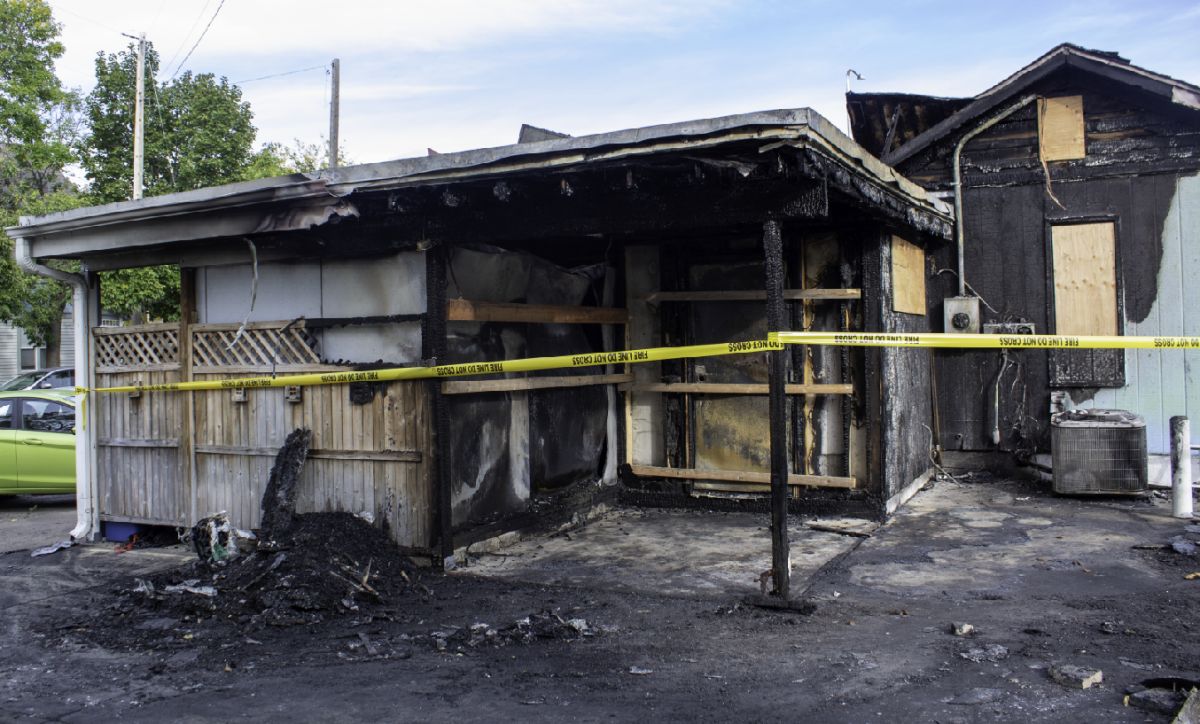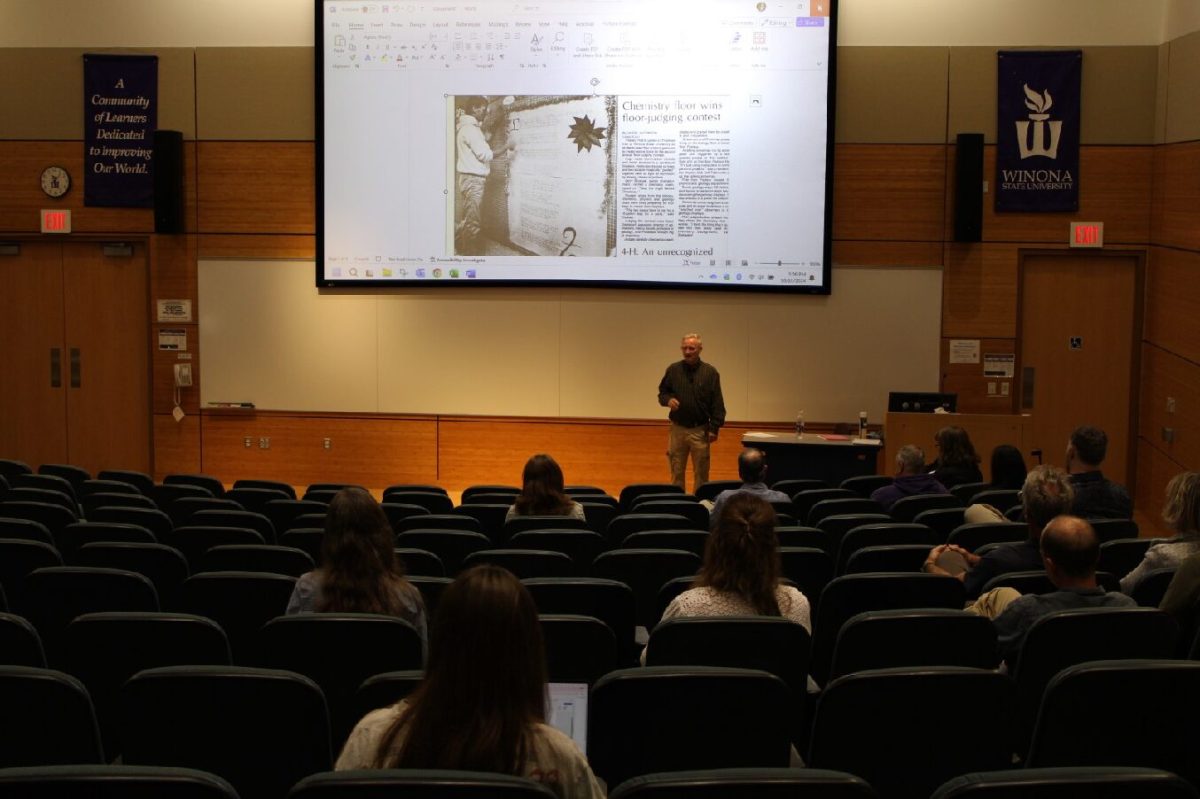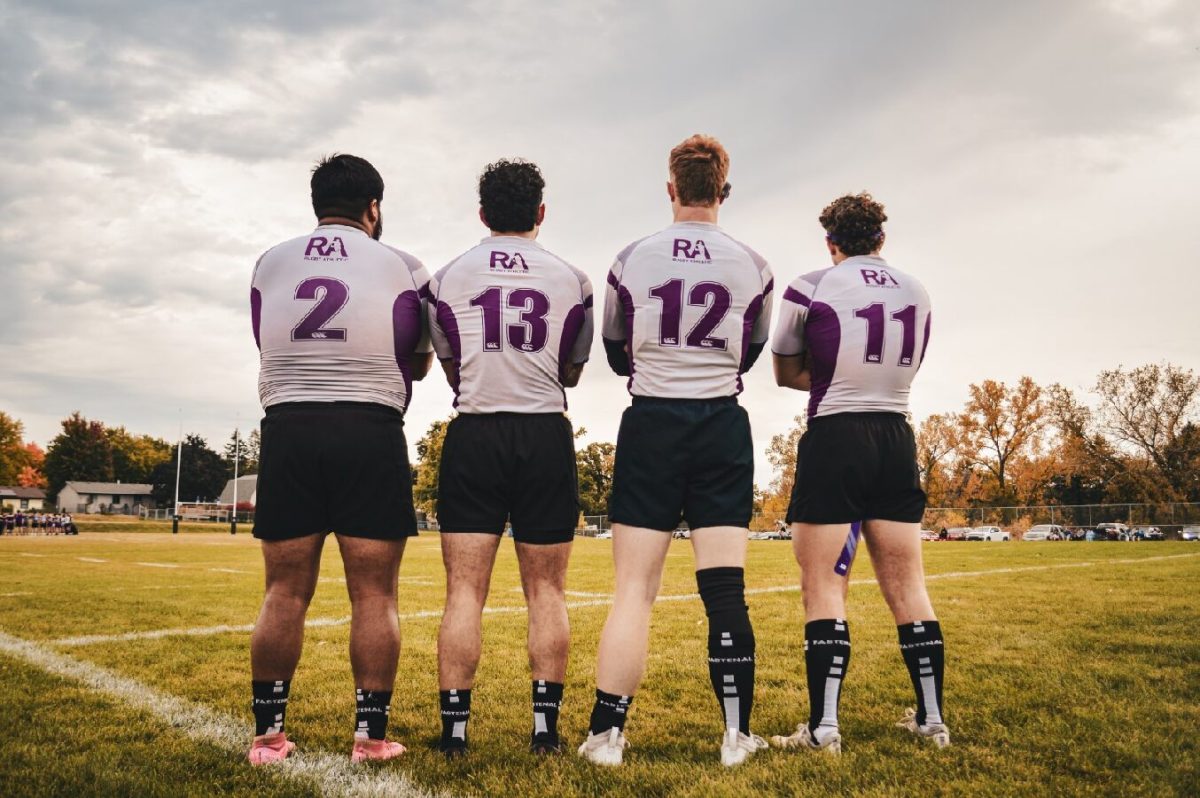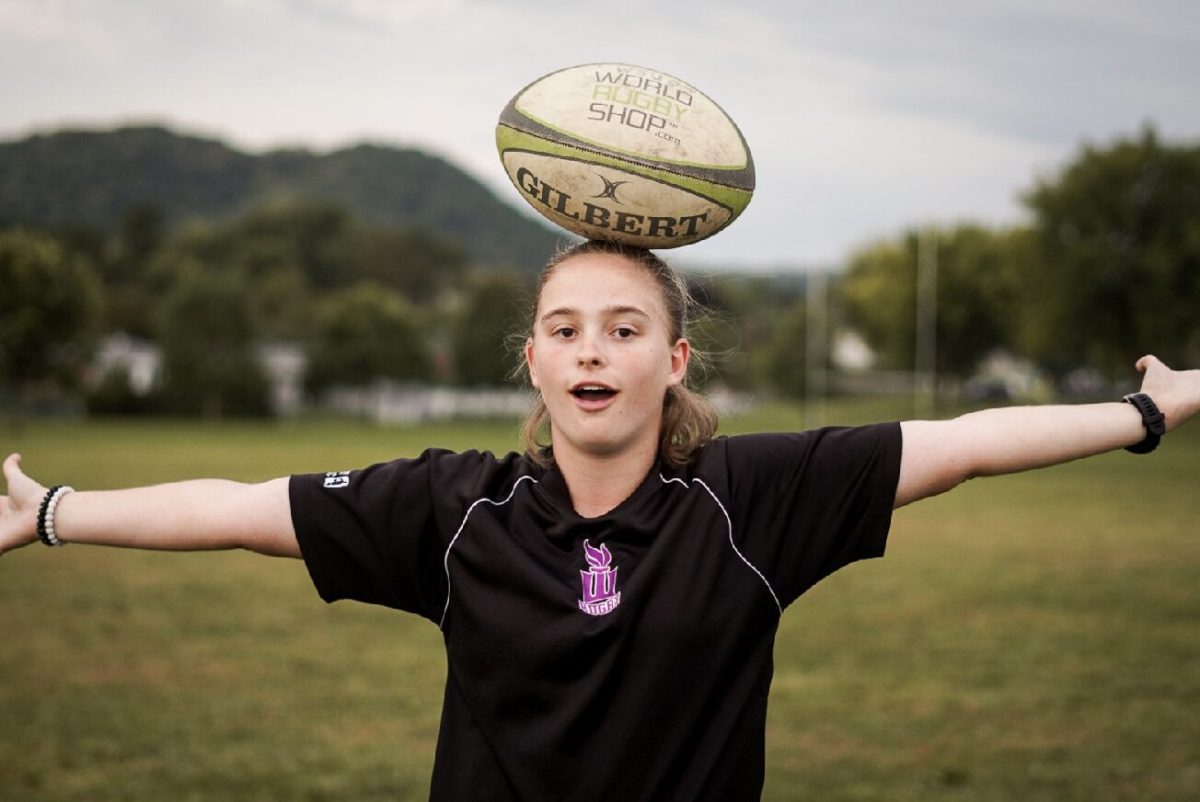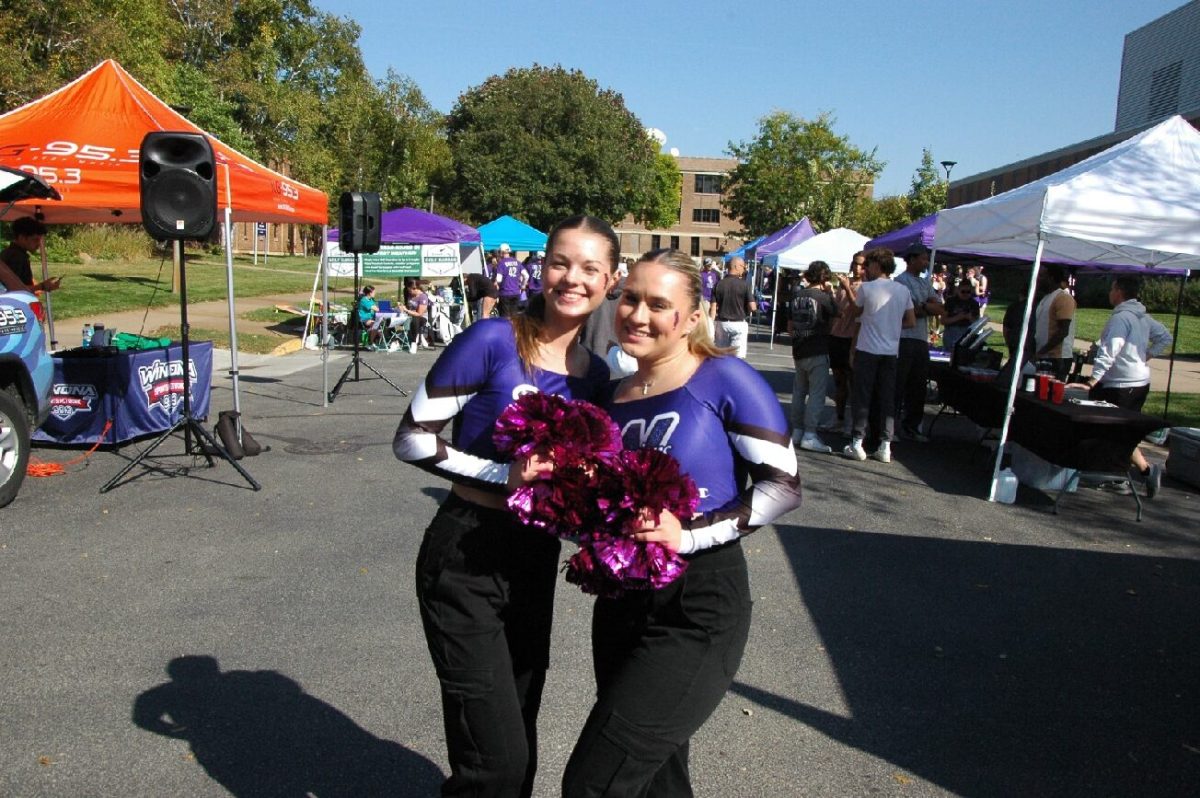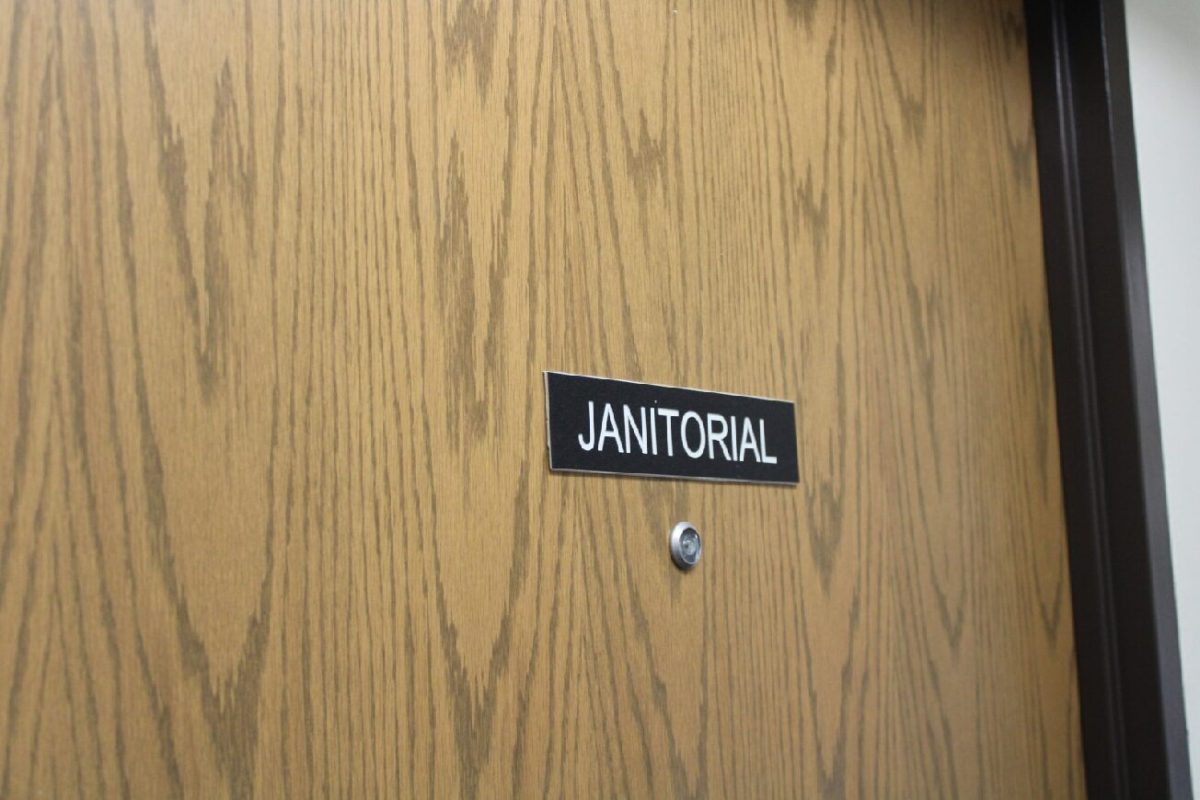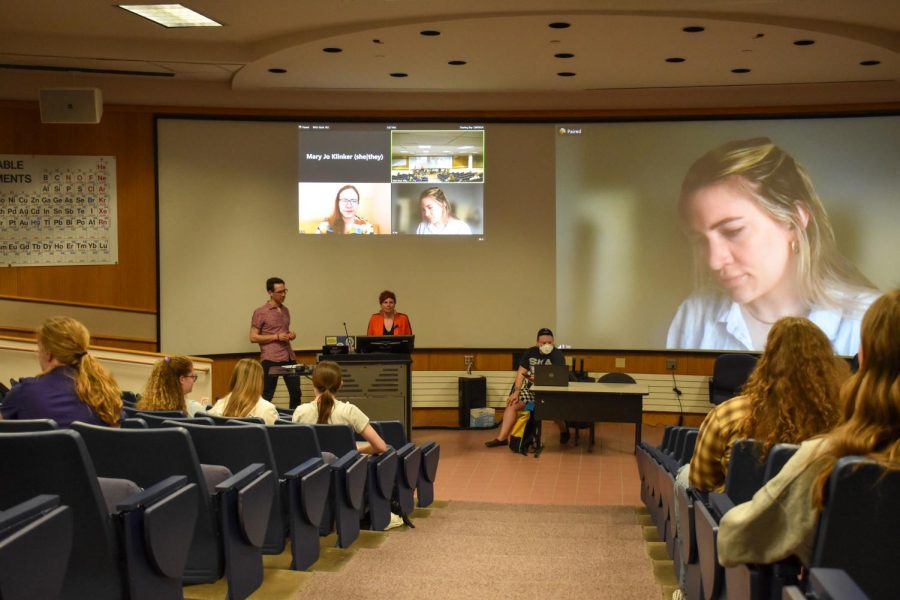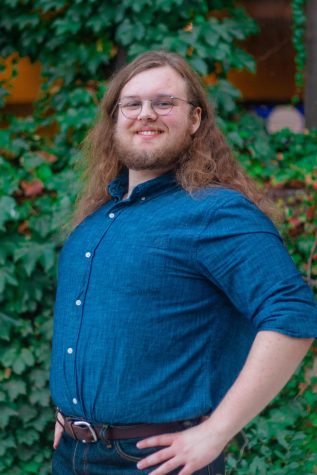Panel discusses intersection between gender affirming healthcare and reproductive justice
The three panelists for Tuesday’s panel were TL Jordan (they/them), Organizing Manager at Planned Parenthood North Central States; Kat Rohn (she/they), Executive Director of Outfront MN who is a transgender woman; and Jay Belisto (they/them), Political Organizer at Gender Justice and UnRestrict Minnesota.
April 19, 2023
In the United States, the basic human rights of access to healthcare for transgender people and women are under attack. Instead of looking at trans affirmative healthcare and reproductive justice as separate issues, a panel held at Winona State University looked at how these two issues intersect with one another.
On Tuesday, April 11, Winona State University held a panel titled “The Intersection of Trans Affirmative Healthcare and Reproductive Justice”. The event was organized by the director of the university’s Women’s Gender and Sexuality studies Dr. Mary Jo Klinker (she/they) and the Intercultural and Completion Coordinator for the Office of Equity and Inclusive Excellence Tyler Treptow-Bowmna (he/they). The event also featured three panelists who gave their input on the issue from their own experience with life and the work that they do.
The three panelists were TL Jordan (they/them), Organizing Manager at Planned Parenthood North Central States; Kat Rohn (she/they), Executive Director of Outfront MN who is a transgender woman; and Jay Belisto (they/them), Political Organizer at Gender Justice and UnRestrict Minnesota.
After each panelist had their turn to voice their input, they were then given ten minutes to discuss with each other before opening up to answer questions posed by students and faculty members in attendance.
Jordan discussed how the issues of trans affirmative healthcare and reproductive justice are linked by the idea that women and young people are seen as vulnerable by the dominant culture and must be protected from making the “wrong” decision.
“Vulnerability can be weaponized alongside bodily autonomy for political gain,” Jordan said.
This is backed up by the fact that several states are now pushing for laws restricting the bodily rights of both women and LGBTQ+ individuals.
Belisto mentioned their experience as a teen mother, and how they were lied to by a Crisis Pregnancy Center which showed them a fake ultrasound of a fetus that was much more developed than the one they had been carrying at the time.
Rohn brought up the throughlines of privacy, bodily autonomy and personal freedom which also makes the issues inextricably intertwined.
Rohn said that these centers are “insidious” and claimed they have very few accountability measures.
Despite this, some advocates of these issues remained separated from each other. There are some who believe that transgender men and women should not have a say in the matter of reproductive freedom.
If the two issues cannot be fought for hand-in-hand, Rohn stated “we get picked apart.”
Lawmakers against the issues will continue restricting freedoms bit by bit, picking them apart as Rohn put it.
According to Klinker, “The UCLA Williams Institute documented that US political bans would put 58,000 transgender youth at risk of losing access to gender-affirming care.”
Klinker claimed that these were coordinated efforts to control women and individuals who identify as transgender, non-binary and intersex.
Jordan also brought up how trans reproductive issues are never discussed, such as trans men who still wish to give birth but are assumed that they do not want to.
They also mentioned how some see the involvement of trans people in these issues as harmful to women.
Jordan said that this claim was “not acceptable.”
Klinker also gave her input on this issue in an interview, citing reproductive justice as defined by The SisterSong Women of Color Reproductive Justice Collective.
The organization defined it as “the human right to maintain personal bodily autonomy, have children, not have children, and parent the children we have in safe in safe and sustainable communities.”
Klinker stated “we all deserve bodily autonomy.”
For students who wish to get more involved in these issues, Klinker suggested enrolling in WGSS courses, attending more events from the Office of Equity and Inclusive Excellence and joining clubs such as WSU Students for Reproductive Justice and PRISM.


